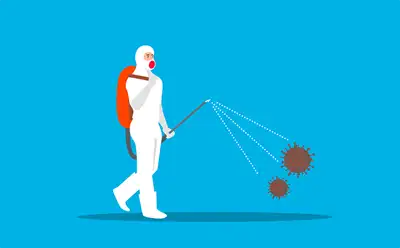BESA (Building Engineering Services Association), established a standardised kitchen extraction and duct cleaning system under TR19 that you are required by law to follow. TR19 is a specification followed by building engineering and insurers’ service providers when performing duct cleaning operations.
TR19 Comprehensive Specification
The comprehensive of TR19 details access to your ductwork, cleaning process, inspection mechanisms, and post-cleaning verification.
- Access Mechanisms– Your ductwork should have no irregularities as these can become an environment that collects grease and dust. TR19 standards state your duct system should have a sufficient number of quality panels enabling your system to be inspected and cleaned regularly. It is understood that access to ductwork depends on several factors, such as your building design and where the ductwork is located. Your access panels are still required to be constructed of the same material as your ductwork. This work needs to be insulated, sealed to prevent leaks, and contain quick release catches. Where you have the access panels placed is also important. The panels should be located at the top or to the side of the ductwork. If these placements are not possible, they can be placed on the bottom; however, special care must be taken to ensure they are properly fitted to prevent leaks.
- Cleaning Process– The cleaning process under TR19 standards states these steps are necessary:
- Manually hand wipe surfaces of the ductwork system
- Manually hand scrape any heavy deposits from the ductwork surfaces
- Chemicals are to be used to dissolve or soften deposits so they can be scraped off
- Mechanical brushing via machine methods to remove or dislodge deposits can be utilised
TR19 standards recommend you have regular cleaning of your ductwork systems. How frequently you clean them depends on the system type and the frequency of their use. All systems should be regularly inspected to ensure that they are cleaned at the correct frequencies to prevent grease levels or dust levels from exceeding the stated levels as per TR19 Grease and Air.
VSS (Ventilation Surveys & Services) is an industry leader for ventilation hygiene and fire compliance. We have trained technicians with the necessary experience to perform your fire door inspections and kitchen extraction cleaning.
- Inspection Mechanisms– TR19 standards require you to have your ductwork inspected at regular intervals. VSS guarantees to perform leading ventilation hygiene services and follows all United Kingdom fire regulations. Inspections are necessary to check for any accumulation of dirt or grease in your system. Under the BS and TR19 standards, there should be no more than twelve months between your inspections. VSS specialists can perform your necessary inspection and create a plan for scheduling future inspections depending on your duct systems’ use.
- Post Cleaning Verification– TR19 standards recommend assessing the cleanliness of your ductwork systems through a visual check. Once the post cleaning verification is performed, you should receive a written report detailing:
- Your system description and location
- Measurements were taken for pre-cleaning
- Measurements have been applied for post-cleaning
- Photos of your clean duct system
- List of any additional works performed
- Data on any chemicals used
- Recommendations given for future duct cleaning
- Observations made on the condition of your duct system
- Schematic of your system showing access panel and testing locations
VSS teams are expertly trained to meet all the TR19 standards set forth by BESA and current British Standards. Through our services, you will receive work performed using the latest in technology and innovative methods. VSS will provide you with the highest quality cleaning of your grease traps, ductwork systems, and kitchen extraction cleaning.

